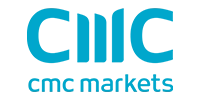Table Of Contents
- Top commodity brokers in 2026
- Historical Background
- How Commodities Trading Works
- Types of Commodities
- Pros and Cons of Commodities Trading
- Popular Commodities and Their Market Dynamics
- Commodity Assets Offered by Each Broker
- Best Commodities Brokers 2026 with Pros and Cons
- How to Invest in Commodities
- Case Study - Crafting and Buying a Futures Contract for Grain
- What to Look For in a Commodity Broker’s Offering?
- How to Choose the Best Commodities Broker
- What to Avoid When Choosing a Commodity Trading Broker
- How to Open a Trading Account to Start Trading Commodities
- How to Improve Your Knowledge of Commodities Trading
- How to Avoid Commodity CFD Scams
- Ask Other Traders on Our Network
- Let’s Recap
- Arincen’s Review Methodology
How to Trade Commodities, Best Commodity Brokers
With many years of meticulous FOREX broker testing, Arincen stands out as a voice of authority. Our analyses, shaped by exhaustive data collection, are trusted by many. Each year, we gather 120 data points from more than 100 brokers. Our team of more than 20 people collaborate extensively to produce high-quality broker reviews like this one. For a detailed explanation of how we test brokers, navigate to the bottom of this article.
Note: We earn money by selling ads, placements, or through partnerships with some companies we have agreements with, learn more.
Commodity trading has stood the test of time, evolving from ancient barter systems to today's sophisticated markets. Its enduring popularity lies in the intrinsic value of such commodities as gold, oil, and agricultural products, which play crucial roles in our daily lives.
For new retail traders, commodity trading presents a unique opportunity to invest in physical goods and raw materials that are foundational to global economies. By understanding the basic principles of buying, selling, and speculating on these tangible assets, you can navigate the dynamic world of commodity markets. In this article, our experts at Arincen will show you how to trade commodities online and tell you about the best commodity brokers around.
Top commodity brokers in 2026
| Company Name | Regulations | Minimum Deposit | Main Branch | |
|---|---|---|---|---|

ICM capital |
FCA | $200 | London | |
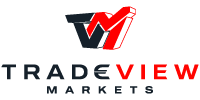
Tradeview |
SCA | $0 | New York, United States of America | |
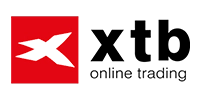
XTB |
FCA | 0$ | United Kingdom | |

IG Group |
FCA | $250 | United Kingdom |

| Company Name | ICM capital |
| Regulations | FCA |
| Minimum Deposit | $200 |
| Main Branch | London |

| Company Name | Tradeview |
| Regulations | SCA |
| Minimum Deposit | $0 |
| Main Branch | New York, United States of America |

| Company Name | XTB |
| Regulations | FCA |
| Minimum Deposit | 0$ |
| Main Branch | United Kingdom |

| Company Name | IG Group |
| Regulations | FCA |
| Minimum Deposit | $250 |
| Main Branch | United Kingdom |
Historical Background
Commodity trading has been around since the beginning of formalized trade, tracing its origins to ancient civilizations where people exchanged goods such as grain, spices, and metals long before modern financial systems. Throughout history, commodities have played a huge role in trade, often acting as a measure of wealth and a medium of exchange. The Silk Road and the Spice Trade are prime examples of how commodities shaped global trade routes and world economies.
Commodities are different from other asset classes like stocks or bonds in several ways. First, they are tangible physical assets with intrinsic value, unlike financial assets which derive value from the issuing entity's future earnings.
Commodities are typically classified into two broad categories: hard commodities, such as metals and energy, which require extraction or mining; and soft commodities, like agricultural products, which are grown or harvested from the earth. Their prices are influenced by global supply and demand dynamics, geopolitical events, and environmental factors, which can lead to significant price volatility.
Additionally, commodities often serve as a hedge against inflation because their prices tend to rise when the cost of goods and services increases. This unique combination of properties makes commodities an intriguing part of the financial system in which to work.
How Commodities Trading Works
The basic methods of commodities trading are straightforward: you buy commodities at a lower price and sell them at a higher price to make a profit. This can be done directly by purchasing the physical goods or more commonly through financial instruments like futures contracts, which allow you to speculate on the price movements of commodities without owning the physical assets.
Commodity trading usually takes place on specialized marketplaces,known as exchanges. Major exchanges include the Chicago Mercantile Exchange (CME), the New York Mercantile Exchange (NYMEX), and the London Metal Exchange (LME), each of which facilitates the trading of specific types of commodities. These exchanges provide a thriving environment for buying and selling commodities, ensuring transparency and efficiency.
A key feature of commodities trading is the use of futures contracts. A futures contract is an agreement to buy or sell a specific quantity of a commodity at a predetermined price on a set date in the future. These contracts allow you to hedge against price fluctuations, speculate on price movements, and lock in prices for future delivery.
By leveraging futures contracts, you can manage risk and potentially profit from the volatility inherent in commodity markets without handling the physical commodities themselves. This makes commodities trading accessible and appealing for a wide range of investors, from seasoned professionals to retail traders.
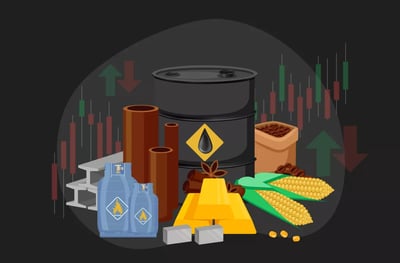
Types of Commodities
As we have mentioned, there are different types of commodities. Here is a breakdown:
Energy commodities
Crude oil: Crude oil is a fundamental energy commodity and a key driver of global economies. It is pulled from the earth and refined into various products, including gasoline, diesel, and jet fuel.
Natural gas: Natural gas is a vital energy source used for heating, electricity generation, and as an industrial feedstock. Natural gas is traded globally, with significant price variations between different regions.
Electricity: Electricity is an essential commodity in the energy sector, traded in regional and national markets. Unlike other commodities, electricity cannot be stored easily, making its supply and demand balance critical.
Metals
Gold: Gold is a valuable metal prized for its use in jewelry, electronics, and as a financial asset. Due to its ability to retain value, it is often seen as a safe-haven investment, particularly during economic uncertainty. Read our article on the Best Gold Brokers here.
Silver: Silver is a precious metal with industrial applications. It is used in electronics, solar panels, and medical devices, making it price-sensitive to economic trends and industrial demand.
Platinum: Platinum is a rare metal with applications in the automotive industry, particularly in catalytic converters, as well as in jewelry and investment products. Its price is influenced by industrial demand and supply constraints.
Industrial metals
Copper: Copper is a crucial industrial metal in electrical wiring, plumbing, and electronics. Due to its extensive use in construction and manufacturing, its price is often seen as an indicator of economic health.
Aluminum: Aluminum is essential in the aerospace, automotive, and packaging industries. Production costs and demand from these sectors affect its price.
Zinc: Zinc is primarily used to galvanize steel, protecting it from corrosion. It is also used in the production of alloys and chemicals. The price of zinc is driven by industrial demand and mining supply.
Agricultural commodities
Wheat: Wheat is a staple food crop used for making bread, pasta, and other food products. Its price is influenced by weather conditions, crop yields, and global trade policies.
Corn: Corn is a versatile crop used as a food source, animal feed, and in the production of biofuels. Prices are affected by agricultural conditions, demand for ethanol, and changes in global consumption patterns.
Soybeans: Soybeans are used for food products, animal feed, and oil extraction. Market prices are influenced by crop yields, demand from major importers like China, and the use of soy products in various industries.
Soft commodities
Coffee: Coffee is one of the most traded commodities worldwide, with prices affected by climate conditions, harvests in major producing countries, and changing consumer preferences.
Cotton: Cotton is a key raw material for the textile industry. Its price is impacted by weather conditions, agricultural practices, and shifts in global textile demand.
Sugar: Sugar is used in food production and ethanol manufacturing. Prices are influenced by crop yields, international trade policies, and demand for sugar-based products.
Other commodities include livestock, forestry, and even renewable energy certificates, but we will concentrate on the main commodities to which we’ve just introduced you. These various types of commodities offer diverse opportunities for traders, allowing you to invest in and speculate on the essential resources that drive the global economy.
Pros and Cons of Commodities Trading
Each type of financial asset comes with its pros and cons. Here is the lowdown on commodities:
Pros
Diversification
Commodities offer an excellent way to diversify an investment portfolio. Unlike stocks and bonds, commodity prices often move independently of other asset classes, which can reduce overall portfolio risk. This diversification can help protect against market downturns in more traditional investments, providing a buffer against economic and financial instability.
Hedge against inflation
Commodities are a natural hedge against inflation. When the prices of goods and services rise, the value of such physical commodities as gold, oil, and agricultural products increases. This can help preserve purchasing power over time, making commodities an attractive option for investors looking to protect their wealth in inflationary environments.
Potential for high returns
Due to the high price volatility and leverage in the markets, commodities trading can offer substantial profit opportunities. Strategic investments in commodities can yield significant returns, especially when traders successfully predict price movements and capitalize on market trends. The dynamic nature of commodity prices provides short-term gains and long-term growth opportunities.
Cons
High volatility
Commodities are notoriously volatile, with prices subject to rapid and unpredictable changes due to geopolitical events, natural disasters, and shifts in supply and demand. This high volatility can lead to significant losses if market movements are not correctly anticipated or if traders are unprepared for sudden price fluctuations.
Leverage risks
Trading in commodities often involves using leverage, where traders borrow money to increase their investment potential. While leverage can amplify gains, it also significantly increases the risk of substantial losses. A small adverse price movement can quickly lead to losses that exceed the initial investment, making leverage a double-edged sword that requires careful risk management.
Market-specific risks
Each commodity market comes with its own set of specific risks, quite apart from the general risks of online trading. For example, agricultural commodities are highly sensitive to weather conditions and crop diseases, while energy commodities are influenced by geopolitical tensions and regulatory changes.
Popular Commodities and Their Market Dynamics
If you are interested in buying into some of the most popular commodities, this is what you should know about their market dynamics:
| Commodity | Description | Factors Affecting Prices | Details |
| Gold | Gold is a well-known and widely traded commodity, valued both as a precious metal and a safe-haven investment. It is used in jewelry, electronics, and as a reserve asset by central banks. | Supply and Demand | The supply of gold is relatively fixed in the short term, with mining production being steady but not easily scalable. Demand fluctuates based on its use in jewelry, technology, and investment. |
| Geopolitical Events | Gold prices often rise during geopolitical uncertainty or economic instability, as investors seek a stable store of value. Political turmoil, wars, and economic crises can increase gold demand. | ||
| Inflation and Currency Fluctuations | Gold is commonly seen as a hedge against inflation and currency devaluation. When inflation rises or a currency weakens, gold prices typically increase as investors look for assets that maintain value. | ||
| Crude Oil | Crude oil is a critical energy commodity, serving as the raw material for fuels, lubricants, and many chemicals. It is a key driver of the global economy and a major focus for traders and investors. | Supply and Demand | Oil prices are highly sensitive to changes in supply and demand. OPEC production decisions, changes in global oil consumption, and the development of alternative energy sources can significantly impact prices. |
| Geopolitical Events | Events such as conflicts in oil-producing regions, sanctions, and political instability can disrupt supply chains and cause sharp price fluctuations. For instance, geopolitical tensions in the Middle East often lead to price spikes. | ||
| Corn | Corn is a staple agricultural commodity, widely used for food, animal feed, and biofuel production. It plays a crucial role in global agriculture and food security. | Supply and Demand | Corn prices are influenced by planting decisions, crop yields, and global demand for food and biofuels. High demand for ethanol, which is produced from corn, can drive prices upward. |
| Weather Conditions | Weather events, such as droughts, floods, and unseasonable frosts, can significantly affect corn production. Adverse weather conditions can lead to reduced yields and increased prices. | ||
| Geopolitical Events | Trade policies, tariffs, and agricultural subsidies can affect the global corn market. Political decisions affecting trade with major producers, like the United States and Brazil, can lead to price volatility. |
Commodity Assets Offered by Each Broker
Choosing the right broker is essential for accessing a wide range of commodity assets tailored to your trading needs. The table below provides a clear comparison of the commodity assets available with each broker, helping you make an informed decision.
As part of our evaluation process, the Arincen team gathered and cross-checked broker pricing from official documentation and live trading environments. This approach allowed us to compare spreads, commissions, and fees under actual market conditions. The breakdown of our findings is presented in the table that follows.
| Brokers | Currency pairs | Stocks | Indices | Commodities | Crypto | ETFs |
| Tradview | 80 Pairs | 5000 Shares | 10 Indices | 10 Commodity | 30 Coins | Unavailable |
| ICM Capital | 67 Pairs | 89 Shares | 17 Indices | 12 Commodity | 6 Coins | Unavailable |
| XTB | 57 Pairs | 1848 Shares | 36 Indices | 22 Commodity | 22 Coins | 135 ETFs |
| IG | 81 Pairs | 21714 Shares | 49 Indices | 39 Commodity | 11 Coins | 12858 ETFs |
| Saxo Bank | 320 Pairs | 22000 Shares | 49 Indices | 39 Commodity | 9 Coins | 6700 ETFs |
| CMC Markets | 330 Pairs | 8000 Shares | 80 Indices | 100 Commodity | 18 Coins | 200 ETFs |
| Think Markets | 46 Pairs | 3750 Shares | 15 Indices | 11 Commodity | 21 Coins | 350 ETFs |
Best Commodities Brokers 2026 with Pros and Cons

ICM capital
ICM Capital is a UK-origin broker that operates worldwide. The firm provides access to diverse trading products, including FOREX, commodities, futures, and indices. ICM offers a secure and efficient trading environment by combining advanced technology with deep liquidity. The company prides itself on delivering high liquidity, tight spreads, mobile trading, and advanced technical analysis.
Why we picked ICM Capital
For its robust regulatory framework and global oversight. Its presence across multiple jurisdictions demonstrates a genuine commitment to investor protection. This foundation makes it a dependable choice for both new and seasoned traders.
| Broker Evaluation | 9.11 |
| Regulations | FCA |
| Minimum Deposit | $200 |
| Islamic Account | yes |
| Payment Methods | Bank transfer, credit card, Electronic Banks, Crypto |
| Main Branch | London |
| Customer Service | Market Opening Hours |
| Demo Account | Yes |
| Trading Platforms | MT4, MT5, C TRADER, Web Platform |
Pros
-
Segregated client funds.
-
Regulated by the UK’s FCA.
-
Long trading history from 2009.
-
More than 300,000 traders, showing trust.
-
Decent funding options.
-
No swaps.
-
MetaTrader4 (MT4) desktop and mobile download.
-
Competitive spreads
-
ECN spreads starting from zero pips.
-
Fast execution and no-requotes.
Cons
-
No proprietary platform.
-
No US services.
-
Limited cryptocurrency offerings.
-
Inactivity fees which deter casual traders.

Tradeview
Tradeview Markets, the parent company of Tradeview Forex, was established in 2004 and is headquartered in the Cayman Islands. It is committed to offering a broad and accessible trading environment through ECN trading with direct access to dozens of banks and prime liquidity providers, ensuring tight spreads. The broker offers access to a wide range of financial instruments, including FOREX, indices, stocks, cryptocurrencies, and commodities.
Why we chose Tradeview
Our choice was influenced by this broker’s transparent fee structure and competitive pricing, with low spreads and clear cost disclosures. Traders benefit from predictable pricing without hidden charges. Cost efficiency is a crucial advantage in high-frequency and active trading environments.
| Broker Evaluation | 10.00 |
| Regulations | SCA |
| Minimum Deposit | $0 |
| Islamic Account | Yes |
| Payment Methods | Bank Transfer, Credit Cards, Crypto, Electronic banks, local deposits |
| Main Branch | New York, United States of America |
| Customer Service | |
| Demo Account | Yes |
| Trading Platforms | Metatrader 4, Metatrader 5, cTrader, API/FIX |
Pros
-
Variety of trading platforms, such as MT4, MT5, cTrader, and Currenex, catering to different trading preferences and strategies.
-
Provides ECN trading through its innovative Liquidity Connector®, granting direct access to over 50 banks and liquidity providers. Offers tight spreads starting from 0 pips.
-
A low minimum deposit of only $0 is required to start trading, making it accessible to a wide range of traders.
-
Offers a broad range of financial instruments, including FOREX, indices, stocks, cryptocurrencies, and commodities, thus catering to diverse trading interests.
-
Offers educational materials and a demo account, suitable for both beginners and experienced traders looking to refine their strategies.
-
Supports automated trading through the use of Expert Advisors (EA) on MT4 and MT5 platforms.
-
Regulated by CIMA, MFSA, and will soon be regulated by the UK’s Financial Conduct Authority (FCA).
-
Offers global customer service in multiple languages, catering to international traders.
-
Offers competitive leverage up to 400:1.
-
Charges no fees for deposits, making it cost-effective for traders to fund their accounts.
Cons
-
While regulated by CIMA and the MFSA, the broker is still in the final stages of becoming regulated by the tier-one FCA.
-
This means, unfortunately, that the broker currently has no way of offering compensation to affected traders if the broker goes bust. Of course, once FCA regulation is obtained, it will be mandatory for the broker to be part of the Financial Services Compensation Scheme (FSCS) where you could be entitled to compensation of up to £85,000.
-
Trades on the Innovative Liquidity Connector® account are subject to commission charges, which may add to trading costs.
-
Lacks a dedicated mobile app, relying instead on the mobile versions of its available trading platforms.
-
While offering high leverage up to 400:1 can be an advantage, it also introduces significant risks, especially for new traders.

XTB
XTB is a well-regarded broker known for its low costs, extensive asset selection, and advanced trading tools. Founded in 2002 in Poland, it has created a proprietary xStation 5 platform that offers robust features like real-time performance stats, sentiment analysis, and heat mapping. XTB's educational resources are comprehensive, catering to all skill levels with video tutorials, guides, and an accessible Trading Academy. XTB is an excellent choice for cost-conscious traders looking for diverse investment options and high-quality support.
Why we chose XTB
We chose this broker for its responsive and multilingual customer support, available across channels when assistance is needed most. Quick, professional responses reduce friction and build trader confidence. Support quality often reflects overall service reliability.
| Broker Evaluation | 8.55 |
| Regulations | FCA |
| Minimum Deposit | 0$ |
| Islamic Account | yes |
| Payment Methods | Bank transfer, Credit Card, Electronic Banks |
| Main Branch | United Kingdom |
| Customer Service | Market Opening Hours |
| Demo Account | Yes |
| Trading Platforms | MT4, xStation |
Pros
-
20-year history of operation.
-
Regulated by the FCA (UK) and CySEC in Cyprus.
-
Globally recognized, having won multiple awards.
-
Some of the lowest FOREX spreads in the market.
-
Offers protection for client accounts.
-
Emphasis on customer service.
-
Excellent support, as well as learning and research tools.
Cons
-
Does not accept US clients.
-
Number of instruments offered is average-sized.
-
No GSLO.
-
No back-testing or automated trading capabilities.
-
No social trading.

IG Group
IG Group is a highly regarded publicly traded broker that is licensed by 10 regulatory bodies, including the FCA, in its home base of the UK. It offers more than 17,000 financial assets to trade, including currencies, commodities, regular stocks, contracts for difference stocks, ETFs, indices, and cryptocurrencies. Further, it has its own state-of-the-art trading platform and offers a relatively low spread.
Why we chose IG Group
For its clear commitment to transparency and fair dealing, with open terms and client-friendly policies. Honest reporting builds trust and fosters long-term client relationships. We value brokers who prioritise clarity over complexity.
| Broker Evaluation | 8.54 |
| Regulations | FCA |
| Minimum Deposit | $250 |
| Islamic Account | yes |
| Payment Methods | Bank transfer - credit card - Electronic Banks |
| Main Branch | United Kingdom |
| Customer Service | Market Opening Hours |
| Demo Account | Yes |
| Trading Platforms | IG Trading, MT4,ProRealTime,L2 Dealer |
Pros
-
Intuitive mobile and tablet platforms.
-
Low spread costs.
-
Client education offering extensive research materials.
-
Regulated by many reputable authorities.
-
UK and EU clients get negative balance protection.
-
Financially stable and publicly-listed.
-
Rapid response to customer service queries.
-
Extensive range of trading assets.
-
Powerful social trading community.
Cons
-
U.S. clients are limited to FOREX trading only.
-
U.S. clients do not receive negative balance protection.
-
IG CFD prices can be high by industry standards.
-
Limited product portfolio of only CFD and options in many countries.
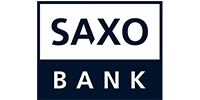
SAXO BANK
Saxo Bank is a well-established, low-risk broker based in Denmark that offers a wide range of trading services to sophisticated traders, institutions, and professional investors. It operates under strict regulatory oversight, ensuring a secure trading environment. The broker provides advanced trading platforms, including SaxoTraderPRO and SaxoTraderGO, catering to high-volume and professional traders with competitive spreads and access to over 71,000 instruments.
Why we chose Saxo Bank
For its comprehensive product range, spanning forex, commodities, indices, and popular CFDs. Such variety allows traders to build diversified portfolios within a single account. This breadth of markets supports evolving strategies and risk preferences.
| Broker Evaluation | 8.09 |
| Regulations | FCA |
| Minimum Deposit | $0 |
| Islamic Account | No |
| Payment Methods | Bank transfer, Credit Card |
| Main Branch | Copenhagen, Denmark |
| Customer Service | Market Opening Hours |
| Demo Account | Yes |
| Trading Platforms | SaxoTrader |
Pros
-
Extensive range of offerings.
-
Offers portfolio-based margin trading for pros.
-
Regulated by top regulators.
-
Excellent trading platforms.
-
Diverse account types.
-
Among the industry’s best research tools.
-
Offers protection for client accounts.
-
No inactivity fee.
-
No platform fees.
-
No minimum funding for entry-level accounts.
Cons
-
Some bonds, options, and futures fees are high.
-
With so many assets, fees can be confusing.
-
High minimum deposit for Platinum and VIP accounts.
-
Does not accept US clients.
-
No MT4 for traders who are used to the platform.
-
No GSLO.
-
No Islamic accounts.
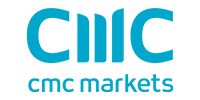
CMC MARKETS
CMC Markets is a global CFD and FOREX broker established in 1989. It is regulated by several authorities globally. The company delivers a formidable offering for traders thanks to excellent pricing, nearly 12,000 tradable instruments, and its proprietary Next Generation trading platform. The platform comes packed with quality research, innovative trading tools, and powerful charting. CMC provides traders with access to an extensive range of CFDs and spread betting across several asset classes.
Why we chose CMC Markets
This broker’s risk management tools and flexible order types stood out to us, enabling traders to tailor positions according to market conditions. Features like stop losses, take profits, and conditional orders provide strategic control. These tools are essential for disciplined trading.
| Broker Evaluation | 8.07 |
| Regulations | FCA |
| Minimum Deposit | 0$ |
| Islamic Account | No |
| Payment Methods | Bank transfer, Credit Card, Electronic Banks |
| Main Branch | United Kingdom |
| Customer Service | Market Opening Hours |
| Demo Account | Yes |
| Trading Platforms | Proprietary Platform, MT4, Web Platform |
Pros
-
Extensive range of offerings.
-
Regulated by the FCA (UK) and other top regulators.
-
Low FOREX fees.
-
Emphasis on education and customer service.
-
Great Web and mobile platforms.
-
Offers protection for client accounts.
-
Research amenities are industry leading.
Cons
-
Does not accept US clients.
-
High CFD spreads for certain indices.
-
It only offers CFD trading, so traders cannot own the underlying asset.
-
Does not support deposits and withdrawals through electronic payments.

think markets
ThinkMarkets is a multi-regulated broker with offices around the globe. The firm is primarily a CFD broker, allowing you to trade across 4,000 instruments in FOREX, futures, commodities, indices, ETFs, crypto, and stocks. With an emphasis on superior customer service, ThinkMarkets maintains round-the-clock support in several languages. It provides different trading accounts suited to individual traders' needs. This includes zero-commission accounts and access to trading guides, analysis tools, and industry news feeds.
Why we chose ThinkMarkets
We selected this broker for its fast and flexible funding options, including bank transfers and card payments. Smooth deposits and withdrawals reduce administrative delays and support efficient capital management. Accessibility of funds is an often-overlooked but essential feature.
| Broker Evaluation | 8.05 |
| Regulations | FCA |
| Minimum Deposit | $0 |
| Islamic Account | Yes |
| Payment Methods | Bank transfer - credit card - Electronic Banks - Crypto |
| Main Branch | Australia |
| Customer Service | Market Opening Hours |
| Demo Account | Yes |
| Trading Platforms | Proprietary Platform, Web Platform, MT4, MT5 |
Pros
-
Beginner assistance is offered through round-the-clock channels.
-
Spreads are as low as 0.0 pips.
-
Round-the-clock expert customer service.
-
CFD shares and indices come at no extra fee.
-
Zero broker fees for FOREX trading.
-
Technical analysis and quality market information.
Cons
-
No binary options are offered.
-
Commissions are charged for two account types.
-
Range of tradeable assets is not as wide as some competitors.
-
No US clients allowed.
There is a high degree of risk involved in trading securities like FOREX, or CFDs, which are highly complex instruments. As a trader, you could be exposed to excessive leverage, questionable broker tactics, market volatility, and limited regulatory protection. Despite your best trading techniques and risk management strategies, your efforts may not be profitable, and you could suffer losses.
How to Invest in Commodities
So, by now you must be wondering how to get in on the action with commodities. If you follow these steps, you’ll be on your way:
Select a commodity
Choose the commodity in which you want to invest, such as gold, crude oil, or corn. Each commodity has unique factors influencing its price, as we have mentioned, so you’ll need to account for these.
Choose an investment method
Futures contracts
These are agreements to buy or sell a specific quantity of a commodity at a predetermined price on a future date. Futures contracts are the most direct way to trade commodities and offer leverage but require understanding of the mechanics and risks involved.
Commodity ETFs and mutual funds
These funds invest in a diversified portfolio of commodities or commodity-related stocks. They provide you with indirect exposure to commodity markets and are less risky than futures contracts.
Stocks of commodity companies
Invest in companies involved in producing, refining, or distributing commodities, such as mining companies or oil producers. This provides indirect exposure to commodity prices through the company's stock price.
Physical commodities
Another direct investment approach is buying and holding physical commodities, like gold bars or agricultural products. However, this involves storage and insurance costs.
Open a brokerage account
Now you are ready to choose a brokerage that offers access to commodity markets and suits your investment needs. Look for platforms that provide competitive fees, various investment options, and robust research and trading tools. We’ll tell you more about these requirements.
Deposit funds into your brokerage account. Ensure you meet any minimum deposit requirements and have enough capital to cover your planned trades and potential margin requirements.
Case Study - Crafting and Buying a Futures Contract for Grain
How would all this look in practice? We hear you ask. Well, here is an example of how it could work. We will use a fictional retail trader named Mr. A.
A retail trader, Mr. A is considering buying a futures contract for corn, a staple grain. He has been following market trends closely and has noticed several factors that lead him to believe that the price of corn is likely to rise in the coming months.
What Mr. A Needs To Think Of
Weather conditions: Mr. A has observed reports of unfavorable weather conditions in major corn-producing regions, such as prolonged droughts or unexpected frosts, which are likely to reduce crop yields. Lower supply typically leads to higher prices.
Global demand: There is an increasing demand for corn, driven by both food consumption and the biofuel industry. Reports in newsfeeds like these indicate that major biofuel producers are ramping up production, which will further drive up demand for corn.
Economic indicators: Economic reports suggest rising inflation, which often results in higher prices for agricultural commodities as the cost of goods and services increases.
Supply chain disruptions: Mr. A has noticed news about supply-chain disruptions, such as logistical bottlenecks and trade restrictions, which could delay the distribution of corn and contribute to rising prices.
Crafting the futures contract
Based on his analysis, Mr. A decides to buy a futures contract for corn to capitalize on the anticipated price increase. He selects a corn futures contract traded on the CME. Futures contracts are standardized, and each contract typically represents a specific quantity of corn (e.g., 5,000 bushels).
Contract specifications: Contract size: 5,000 bushels
Mr. A chooses a delivery month that aligns with his market outlook, to give enough time for his predictions about weather and demand to play out.
Mr. A logs into his broker’s platform, which provides access to the CME futures market. He places a buy order for one corn futures contract, specifying the December delivery month. The current futures price for December corn is $4.00 per bushel. Therefore, the total value of the contract is 5,000 bushels x $4.00 = $20,000.
Mr. A is required to post an initial margin, typically a percentage of the contract value, say 10%. This means he needs to deposit $2,000 into her brokerage account to secure the position.
From there, Mr. A monitors weather forecasts, economic reports, and supply-chain developments closely. If the price of corn rises as anticipated, Mr. A can either hold the contract until closer to the delivery month or sell the contract at a profit before expiration. If the market moves against expectations, he can cut losses and sell the contract.
What to Look For in a Commodity Broker’s Offering?
When considering a broker for trading or investing in commodities, it's important to evaluate their features closely. Here's a checklist of what to seek:
Regulation and licensing:
Ensure the broker is regulated by a reputable authority. Commodity brokers must be regulated by the same regulators that regulate other financial assets, such as FOREX and crypto. If you want to read more about one such top-tier broker, the UK’s Financial Conduct Authority (FCA), check our article here.
Spreads and fees:
Examine the spreads they offer for commodities trading. Check for any hidden fees, such as inactivity fees, withdrawal fees, or account maintenance fees. You should also pay close attention to the spreads.
Leverage and margin requirements:
Understand the leverage on offer for commodities. While higher leverage can amplify returns, it also increases risk. Also check the margin requirements, especially if you're planning to trade with borrowed funds.
Trading platform:
Evaluate the user-friendliness and reliability of your broker’s trading platform. Be on the lookout for advanced charting tools, technical analysis indicators, and real-time price feeds for commodities.
Commodities offered:
Look into the variety of commodities-related products they offer, such as futures, CFDs, ETFs, or other types.
Order types:
Ensure the broker offers a variety of order types, such as market, limit, stop, and trailing stop orders, which can help your risk-management efforts.
Liquidity:
Brokers connected to liquid markets will provide more efficient trade execution, reducing the risk of slippage, which is when a deal goes through at a different price than when you placed the trade. This happens in low-liquidity environments.
Customer support:
Consider the quality and availability of their customer support. Prompt assistance can be crucial, especially if you encounter issues during trading.
Education and research:
A quality broker often provides educational resources, such as webinars, articles, and tutorials, to help traders make informed decisions.
Deposits and withdrawals:
Check for ease and speed of depositing and withdrawing funds. Ensure there are no excessive fees associated with these transactions. Verify the methods available, such as bank transfer, credit card, e-wallets, etc.
Reputation:
Look for online reviews and feedback from other traders or independent websites. This is where you will often get the scoop on whether the broker engages in such fair trade practices as efficient trade execution and no manipulation of market prices.
Demo account:
A broker offering a demo or practice account allows you to test its platform and your strategies with virtual money before committing real funds.
How to Choose the Best Commodities Broker
Taking all the factors we’ve mentioned above, you must pay attention to regulations and platforms:
Regulation:
Authority and jurisdiction: Ensure that the commodity broker you choose is regulated by a well-known and reputable regulatory body, such as the FCA in the UK, the Commodity Futures Trading Commission (CFTC) in the US, the Australian Securities and Investments Commission (ASIC) in Australia, or other equivalent entities. Different jurisdictions have varying levels of oversight and protection.
Investor protection: Some regulatory bodies offer compensation schemes that protect investors' funds in the event of broker insolvency. For instance, the FCA provides the Financial Services Compensation Scheme (FSCS) in the UK.
Account segregation: Ensure that client funds are kept separate from the broker's operational funds. This offers additional protection for traders.
Trading with an unregulated broker can have dire consequences. Regulated brokers must comply with strict rules to protect your interests. Unregulated brokers may engage in fraudulent activities, such as misappropriating client funds, and may not have adequate measures in place to protect your data. For a list of the best regulators, read our article here.
Platforms:
User-friendly interface: The best app for commodity trading should be intuitive and easy to navigate, especially for new traders.
Stability: Ensure the platform is reliable and doesn't frequently crash or freeze, especially during high-volatility periods.
Features and tools: The best commodity trading platform should ideally offer advanced charting tools, numerous technical indicators, and a range of time frames to help traders analyze the commodities market effectively.
Order types: A variety of order types such as market, limit, stop, and trailing stop orders should be available, allowing for effective risk management.
Mobile trading: In today's world, having a robust mobile trading application is crucial. Ensure the broker's platform is available and functional on smartphones and tablets.
Automated trading: If you're into algorithmic trading, see if the platform supports automated trading systems and with what programming languages it can work (like MetaTrader’s MT4 MQL4). If you want more details on two of MetaTrader’s platforms, see our article here
Trading fees:
When trading commodities through brokers, understanding the various fees involved is crucial. Here's a breakdown of some common fees you might encounter:
Spreads:
The spread is the difference between the buying price (Ask) and the selling price (Bid) of a commodity at any given time. It's essentially the broker's markup on the market price
Commission:
This is a fee charged by the broker for facilitating a trade. When your broker charges a commission, you must account for this cost each time you enter and exit a position. A word of warning: Some brokers offer "commission-free" trading but might make up for it with wider spreads. Always assess the total cost of trading.
Inactivity fee:
An inactivity fee is charged when a trader does not engage in any trading activity for a specified period. It’s often around 90 days, but could differ by broker. If you have funds in a trading account but haven't traded for a while, the broker might deduct an inactivity fee from your account balance.
To assess trading costs accurately, the Arincen research team examined broker pricing across multiple sources, combining published fee schedules with observed trading conditions. Our analysis focuses on spreads, commissions, and additional charges that impact traders in practice. You can see the consolidated findings in the table that follows.







| Spread | Commission | Swap | Islamic Account | |
| Currencies | Starting from 1.3 Pips | 0$ | No | Available |
| Stocks | Starting from 18 Pips | 0$ | Yes | Unavailable |
| Commodities | Starting from 2.3 Pips | 0$ | No | Available |
| Indices | Starting from 4 Pips | 0$ | Yes | Unavailable |
Leverage & stopout
Different regulators have different guiding policies in leverage. Key regulators have implemented specific rules to limit the leverage offered to retail traders as a means of consumer protection.
Here are the leverage rules for commodity CFDs according to some key regulators:
European Securities and Markets Authority (ESMA)
ESMA caps the leverage for commodity CFDs at 20:1. This means that traders need to have a minimum of 5% margin of the total trade value.
CFTC
In the United States, CFD trading isn't permitted for retail traders. However, for related products like commodity futures, there are specific margin requirements set by exchanges and overseen by the CFTC.
ASIC
ASIC has recently implemented rules capping the leverage for commodity CFDs for retail traders at 20:1, aligning with ESMA's restrictions.
FCA
The FCA has adopted rules similar to ESMA, capping leverage for commodity CFDs at 20:1 for retail traders.
As we can see, responsible regulators closely monitor leverage levels. Leverage is a double-edged sword because you can make a lot of money, but you can just as easily become financially ruined!
Similarly with stopouts, many major regulators offer negative balance protection. This is important as your open positions are automatically closed by the broker due to insufficient margin in the account. This mechanism protects you from accruing negative balances and owing money to the broker.
Leverage, while offering handsome profits, significantly increases potential losses. Engaging in high leverage trading without a robust risk management strategy is like navigating treacherous financial waters without a safety net. Approach leverage with caution, employ sound trading strategies, and always try to develop a comprehensive understanding of market behaviors and how they affect your portfolio when you trade on leverage.
Customer support
Be sure to choose a broker that offers reliable customer support with multiple channels of communication, such as phone, email, and live chat. Ensure they provide timely assistance and are available during your trading hours. Evaluate the quality of customer support by reading reviews and assessing the responsiveness and helpfulness of the support team. Good customer service is crucial for resolving trading issues and technical problems quickly.
Based on in-house analysis by the Arincen team, we reviewed pricing data from both official broker websites and live market conditions. This included spreads, commissions, and trading fees observed in real use. The results of that comparison are summarized in the table below.







| Live Chat | Phone | |||
| Available | Available | Available | Available | Available |
| Quick response | Quick response | Fast | Fast | Fast |
Withdrawal and deposit
Ideally, the payment deposit and withdrawal process among the best commodities brokers should be straightforward and convenient. If you have chosen a broker from a developed nation with an advanced banking system, making transactions, including withdrawals from brokerage accounts, is relatively straightforward. The best brokerages offer multiple withdrawal methods, including bank wire transfers, credit/debit card transactions, and even online payment systems. The efficiency of these methods can vary, with wire transfers, for example, typically taking several business days, whereas online payments tend to be much quicker.
Our pricing review draws on Arincen’s independent research, where we analysed broker cost structures using both advertized rates and real-world trading data. By comparing spreads, commissions, and related fees, we aimed to reflect what traders are likely to experience. The outcome of this assessment is displayed in the table below.







| Method | Credit Card | Wire Transfer | Skrill | Neteller | Cryptocurrency | PayPal |
| Deposit fee | 0$ | $0 + Bank commission | 1.9% | 2.5% | Unavailable | 3.75% |
| Withdrawal fee | 0$ | $15 | 1% | $0 | Unavailable | 2% |
What to Avoid When Choosing a Commodity Trading Broker
Choosing a commodities trading broker is a crucial decision for traders and investors. Making an informed choice is essential to ensure a safe and efficient trading experience. Here are some things to avoid when selecting a commodities trading broker:
Lack of regulation
Hidden fees
Poor customer support
Limited trading platforms
Unfavorable reviews and feedback
High spreads
Slow execution speeds
Limited research and educational tools
Lack of cybersecurity measures
Restrictions on trading strategies
Unfavorable withdrawal conditions
Lack of transparency
A word on proprietary platforms: While some proprietary trading platforms are excellent, being restricted to only one (especially if it's not well-reviewed) can be limiting. Many traders prefer brokers that offer popular platforms, like MetaTrader 4 or 5.
The key is to do thorough research. Check reviews, compare fee structures, and even test the broker's platform with a demo account before committing real funds.
Tips to get started trading with a commodity broker
Trading commodities can be both exciting and rewarding, but you must approach it with knowledge and caution. Here are some tips to help you get started with a commodities broker
Educate yourself on commodities and its intricacies
Choose a reputable broker that is regulated by a top regulator
Check reviews and feedback from other traders to understand the broker’s reputation
Understand all the costs
Have a defined trading plan
Start small as you gain experience
Use risk management tools, like setting stop-loss and take-profit
Avoid using excessive leverage
Diversify and don't put all your capital into commodities trading
Avoid emotional trading and don't let fear or greed drive your trading decisions
Be wary of any "hot tips" or "insider information," anything sounding too good to be true probably is
Remember, while trading commodities can offer lucrative opportunities, it also comes with significant risks. Approach it with diligence, preparedness, and a commitment to continuous learning.
How to Open a Trading Account to Start Trading Commodities
Opening a trading account to start trading commodities typically involves several standardized steps. While the exact process may vary slightly, depending on the broker, here's a general step-by-step guide to get you started:
Research brokers:
Look for brokers that are regulated by reputable financial regulatory bodies. Compare fees, spreads, leverage options, platforms, and customer reviews to choose the best broker for your needs. Ensure the broker offers commodities trading in the format in which you're interested (e.g., spot, futures, CFDs, ETFs).
Visit the broker's website:
Navigate to the account registration or sign-up section. Provide personal details, such as your full name, address, date of birth, phone number and email address. Choose the account type you want to open (e.g., standard, mini, micro, professional).
Submit identification documents:
Due to Anti-Money Laundering (AML) and Know Your Customer (KYC) regulations, brokers will typically require identification verification. You might need to provide a copy of a government-issued ID (passport, driver's license) and proof of address (recent utility bill, bank statement).
After submitting your documents, the broker will review them. This can take anywhere from a few hours to several days, depending on the broker. Once approved, you'll need to deposit funds into your trading account to start trading. Many brokers will offer platforms, like MT4 or MT5, cTrader or their proprietary platform. Download the platform, log in using your account credentials, and familiarize yourself with its interface. From there, you are good to start trading!
How to Improve Your Knowledge of Commodities Trading
Improving your knowledge of commodities trading is crucial for success in the markets. A well-informed trader is more likely to make sound decisions and better navigate market complexities. Here are several steps and resources to enhance your commodities-trading knowledge:
Educational content:
With commodities trading for beginners, educational resources are crucial. Look out for platforms offering webinars, tutorials, articles, and even demo accounts to familiarize users with trading concepts.
Analytics tools:
The platform should offer robust analytical tools and many methods to evaluate trader performance. This includes historical returns, risk metrics, trading strategies, and more. Study these as often as you can.
Community engagement:
A vibrant community can provide peer reviews, insights and discussions, which can be invaluable for both novices and experienced traders. Arincen has such a place, somewhere you can get a steady stream of expert trading signals from elite traders.
Real-time data:
This is the lifeblood of social trading. Make sure your broker gives you access to live market data, news updates and economic calendars that can help in making informed decisions.
Tip: Invest in Your knowledge
For every aspiring retail trader, knowledge is key to a successful trading journey. We invite you to delve into Arincen's goldmine of insights, strategies, and expert analyses. Whether you're just embarking on your trading venture or trying to level up your trading game, our resources are designed to give you all the information you need. Visit our educational resources here.
How to Avoid Commodity CFD Scams
It’s a sad reality that scams exist in the trading world, regardless of the type of trading asset. Here are just some examples of how you could get caught:
Fake platforms where scammers set up sophisticated-looking trading platforms
Brokers offering extreme leverage as high as 2000:1 as bait for unsuspecting retail traders
Some unscrupulous brokers might manipulate commodities prices on their platform and list fake prices
“Expert” account managers who make bad trades intentionally, causing the trader to lose money
Hidden fees and charges
Withdrawal issues when trying to take profits
False advertising using fake testimonials that show luxurious lifestyles and promise guaranteed returns
Promoting a platform as regulated when it isn't
Ultimately, all this goes away if you’ve chosen a well-regulated broker. This is because it is the job of regulators to stringently vet the best commodities brokers to ensure their operations are legit. A good regulator should be doing the following to protect commodities traders:
Public warnings: If a regulator finds out about entities operating without the necessary licenses, it issues public warnings. The regulator should maintain a warning list on its Website, alerting the public about brokers that might be conducting unauthorized activities.
Consumer education: While it may not be a direct service, the presence of a robust regulatory body indirectly educates and informs consumers about the standards they should expect from financial entities. Knowing that a financial institution is well-regulated can offer consumers a level of confidence.
Investigations and enforcement: If there's any suspicion or indication of a scam or fraudulent activities, a regulator can launch investigations. If a commodities broker is found to be in violation, the regulator should typically have the authority to enforce punishment, which can include penalties or revoking licenses.
Trading with an unregulated broker can have dire consequences. Regulated brokers must comply with strict rules to protect your interests. Unregulated brokers may engage in fraudulent activities, such as misappropriating client funds, and may not have adequate measures in place to protect your data. For a list of the best regulators, read our article here.
Ask Other Traders on Our Network
Here at Arincen, we’ve gone to extensive lengths to create an enabling environment of networks, where traders of all backgrounds can take part in a vibrant trading space. After all, Arincen’s goal is to simplify the world of trading. Our website provides an unrivaled slate of tools, like our market-leading signals, rolling news, and a thriving community where traders of all levels of experience can learn and profit from each other.
Let’s Recap
For new retail traders, commodities offer a unique opportunity to invest in physical goods and raw materials, which are essential for global economies. Once you understand the principles of buying, selling, and speculating on commodities, you can become well-placed to trade everything from metals to agricultural products. By leveraging futures contracts, you can hedge risks and capitalize on price volatility without the need to handle physical assets. Once you’ve decided which commodities you’d like to trade, you now have a list of excellent brokers from which to choose as well as the tools with which to decide. Happy commodity investing!
Arincen’s Review Methodology
The team at Arincen collected more than 120 pieces of data covering in excess of 100 licensed commodities brokers. Data collection was done in three ways:
Companies’ Websites.
Other Websites that have ranked commodities companies.
A survey questionnaire (referred to here as Survey “1”) was sent to the companies invited to participate in the exercise. We have identified 13 criteria for our assessment, each containing several aspects and carrying its own relative weight. These include licensing, deposits and withdrawals, number of assets, etc.
Afterward, we validated the data by:
Registering with commodities companies as a secret shopper and/or as Arincen.
Survey number “2,” in which we asked these companies’ customers for important feedback and past experience.
The next step saw us evaluate and rank each company, relying on the hard work of 15 Arincen employees. We were cautious in ensuring the most accurate assessment possible, including taking into account different languages, as well as the various mobile-app operating systems, e.g., Apple, Samsung, etc.
To add credibility to our research project, we sent a third and final survey (referred to here as Survey “3”) to enable participating commodities companies to evaluate our own research and whether it accurately reflects the realities on the ground. We were fortunate enough to receive a mark of 9.9 out of 10! We have kept to a minimum the margin of error, which stood at a measly 1%. To learn more about how we came up with the evaluation, please click here.
CFDs are complex instruments and come with a high risk of losing money rapidly due to leverage. 74% of retail investor accounts lose money when trading CFDs with this provider. You should consider whether you understand how CFDs work, and whether you can afford to take the high risk of losing your money.
FAQ
Commodities are tangible physical assets with intrinsic value, unlike financial assets that derive value from future earnings. They are classified into hard commodities (e.g., metals, energy) and soft commodities (e.g., agricultural products).
Geopolitical events such as political turmoil, wars, and economic crises can lead to increased demand for safe-haven assets like gold and cause price spikes in energy commodities like crude oil due to supply disruptions.
Commodities often rise in price when the cost of goods and services increases, preserving purchasing power during inflationary periods. This makes them attractive if you are looking to protect your wealth.
The price of crude oil is affected by supply and demand dynamics, OPEC production decisions, geopolitical events, and weather conditions that impact production and transportation infrastructure.
Adverse weather conditions such as droughts, floods, and frosts can significantly reduce crop yields, leading to higher prices due to reduced supply and increased demand for food and biofuels.
Futures contracts allow traders to buy or sell a specific quantity of a commodity at a predetermined price on a set date in the future. They help manage risk and speculate on price movements without handling the physical commodity.
You should consider regulation and licensing, spreads and fees, leverage and margin requirements, trading platforms, the range of commodities offered, order types, liquidity, customer support, education and research tools, and ease of deposits and withdrawals.

